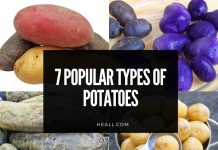Salt can sneak into a diet unnoticed, according to both the Mayo Clinic and Consumer Reports. How do you know what supermarket food to buy for your heart?
Are you trying to minimize the risk of a stroke or heart attack by cutting down on food that is high in salt and sodium? Most of us know that a diet rich in potato chips, buttered popcorn, and french fries could eventually land us in the hospital cardiac ward. But did you know that sodium also lurks in food like chocolate pudding, cocoa mixes, cakes, cream cheese, tomato sauce, soups, condiments, canned foods and even antacids?
Salt and Heart Health
“Heart problems associated with too much salt include increased blood pressure, heart disease, kidney stones or osteoporosis,” according to the Consumer Reports Medical Advisor, Dr. John Santa. To keep sodium levels in check, the Mayo Clinic recommends 2,300 mg a day for a healthy adult, or about 1 teaspoon of table salt. People in higher risk groups, including those with high blood pressure, diabetes, or kidney disease, middle-aged or older people, and black people should consume no more than 1,500 mg of sodium.
Consumer Reports Finds Hidden Sodium in Chocolate Pudding
Consumer Reports headed to the supermarket to check nutrition information on packaged food such as chocolate pudding, pizza and tortillas. Jell-O Instant Chocolate Pudding contained 310 mg of sodium, Mission Flour Tortillas contained 630 mg of sodium, Rice-a-Roni Rice Pilaf had 970 mg of sodium, and the individual Celeste Pizza packed in 1,230 mg of sodium; approximately a day’s allotment!
Help Stroke Proof Your Heart By Comparing Food Labels
You can still enjoy your favorite food from the supermarket by comparing the nutrition labels, according to Consumer Reports. Jell-O Chocolate Cook and Serve pudding has 110 mg per serving, which is 200 mg less sodium than the Jell-O Instant Chocolate Pudding. Tomorrow Gourmet Tortillas contains 470 mg less sodium than does Mission Flour Toritillas, and Near East Couscous Original Plain has no sodium, compared to Rice-a-Roni’s 970 mg.
Double Check Advertising Claims on the Label
Consumer Reports also warns consumers to take health claims on labels of food products with “a grain of salt.” For example, V8 Vegetable Juice touts itself as being “heart healthy,” yet it contains 420 mg of sodium per cup. Also, cross check the label claims of “low” or “less” sodium with the nutrition information on the package.
Protect your heart by eating the recommended daily intake of sodium. Beware of hidden salt and sodium in unlikely food such as chocolate cake, cookies, pudding, tomatoes and canned food by checking nutrition information. And double check the advertising claims on the label with nutrition statistics to encourage heart health and discourage heart disease.
Sources
- Mayo Clinic.org, “How to Tame Your Salt Habit Now,” Accessed December 27, 2010
- Consumer Reports Health.org, “Shaking Out the Sodium,” Accessed December 27, 2010
- American Heart Association.org, Accessed December 27, 2010



